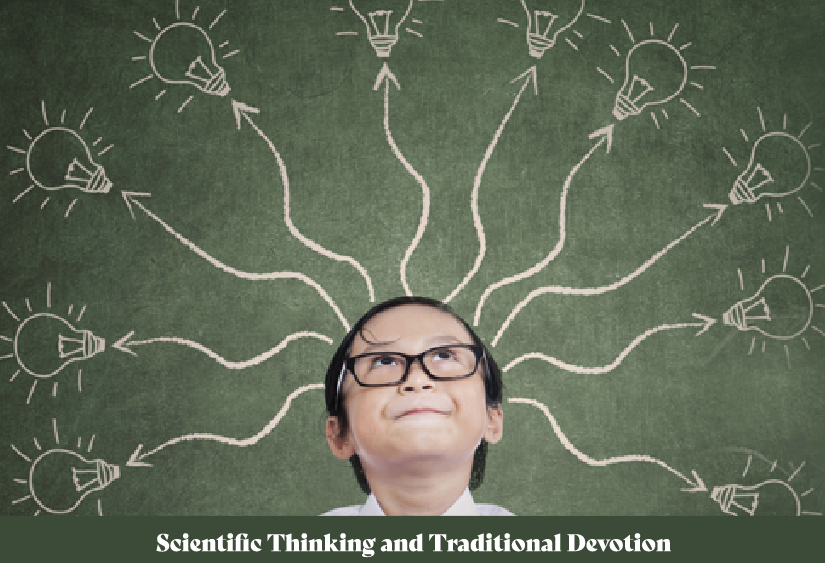
Article by
Recently, a message circulating on WhatsApp caught my eye. The contents of the message informed readers of a scientific research carried out by a Professor Lawrence Joseph at some university in Jakarta. Research findings indicated that the earth would stop rotating on its axis if circumambulation (Tawaf) of the Ka’aba stopped. When I surfed the internet, I also found two websites carrying the same (fake) information. The reasons I, at once, disregarded this post as inauthentic and untrue are twofold. The first reason is that the Ka’aba was first constructed approximately 5000 years ago during the time of Prophet Abraham (A.S.), whereas the earth is calculated to be about 4.5 billion years old and has always rotated on its axis without the Tawaf around the Ka’aba. Secondly, Tawaf has been suspended temporarily during some historical periods such as the siege of Mecca in 683 and 692 A.D. to name a few incidents. Thus, fake messages like this play with people’s religious sentiments and traditional devotion.
The question that begs attention here is: What do such fake messages imply? Such kind of posts reveal several things about the underlying mindset of the propagandist writers and naïve readers. One, the traditional devotion of masses towards religious figures, objects, rituals etc. can be in excess to the point of elimination of rationality, objectivity and scientific thinking. Two, naïve, uneducated and less knowledgeable people can be easily manipulated to believe in the superiority of their creed. Three, the impersonal and objective nature of scientific research is compromised in favour of partiality and parochialism. Four, a specific country is glorified for its strong faith and faith- backed scientific culture. Five, the post also symbolizes a synergy between reason and faith which is an admirable aspiration if it can be undertaken. Six, the mentality of Muslim countries (pardon the generalization) is revealed to be non- scientific. This last implication is the root of the current low status of the Muslim world in science and technology.
The religion of Islam prescribes rules for both spiritual and practical matters which is why faith and science are considered the two sides of the same coin. The early Muslims from the 7th to 15th century were world leaders in scientific exploration with an objective and rational attitude towards the world. Notable intellectuals like Al-Haytham, Al-Beiruni, Al-Khwarizmi, Jabir bin Hayyan and others were known worldwide for their scientific contributions. In fact, the Muslim societies of that era had a scientific and objective approach and conducive environments for inquiry, doubt and rationality. The political downfall of the Muslims also resulted in decline in their academic and scientific rigour and overall empirical attitudes.
When empirical thought is diminished, a mindset of flawed reasoning and exaggerated devotion to rituals takes its place. The elements of faith and religion such as the spirit of inquiry, free will for submission to the divine, moral behavior, religious and worldly knowledge, balancing contemporary needs with demands of one’s faith, are compromised due to illogical thinking, narrow- mindedness and emotional reasoning. This is evident in the 57 countries of the Muslim world today which comprise approximately 26 million square kilometers, out of which only 96 universities were included in the top 1102 world universities according to the Times Higher Education World University Rankings 2018 (for 2016-2017).
Worldwide changes in technology and economy have prompted the Muslim countries to establish more universities now. According to Young Universities Rankings, 2024 that include 673 universities less than 50 years of age, 272 universities belong to 19 Islamic countries. There is an effort to build knowledge streams at par with the more advanced universities in the world. This is a heartening trend as it reflects growing awareness in Muslim countries, however the internal political problems, economic distresses and worsened law and order impede rapid growth of the higher education sector, research culture and an overall tolerant and objective attitude in society.
Quality research and teaching in universities can provide a platform to groom youngsters to face the challenges of practical life ahead. Practical, market- oriented, industry- related and science subjects as well as courses in the humanities should be taught. Most importantly, the principles of critical thinking, empirical attitudes and logical reasoning must be taught. In fact, this should start from school education so that students learn to accept different approaches with an open mind. This can pave the way to a peaceful society where the evils of extremism, radicalism and bitter polarization along political, sectarian and religious grounds do not exist. In the long run, the Muslim world can learn to balance both faith and reason through this approach.
 Monthly "Azeem English Magazine", launched in 2000, records the information about diverse fields like mental health, literature, research, science, and art. The magazine's objective is to impart social, cultural, and literary values to society.
Monthly "Azeem English Magazine", launched in 2000, records the information about diverse fields like mental health, literature, research, science, and art. The magazine's objective is to impart social, cultural, and literary values to society.
+92 51 88 93 092
First Floor, RAS Arcade, Eidhi Market, Street#124, G-13/4, Islamabad, Pakistan, 44000.